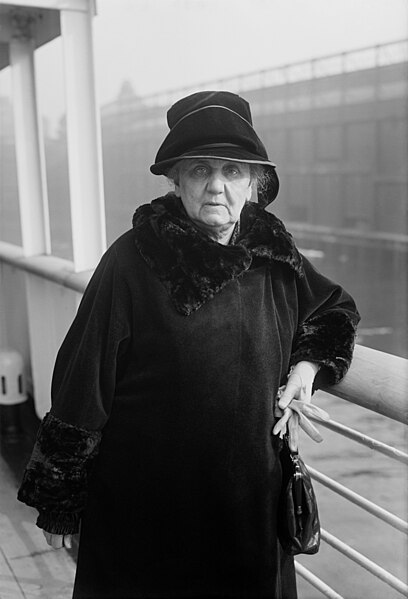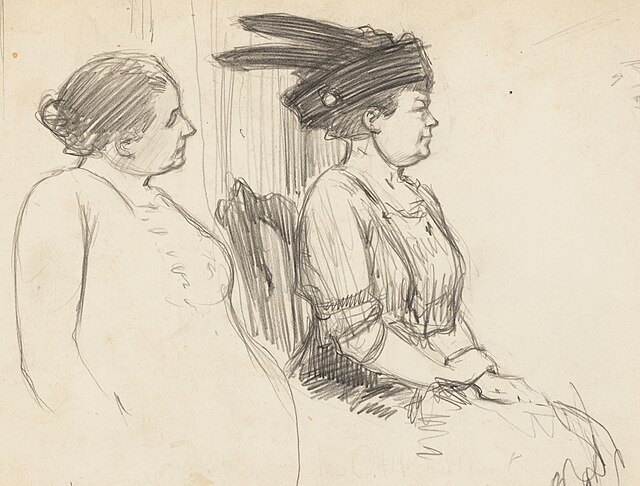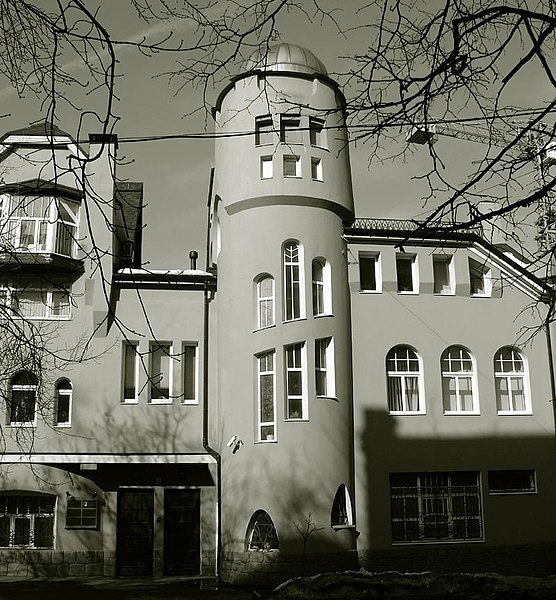Laura Jane Addams was an American settlement activist, reformer, social worker, sociologist, public administrator, philosopher, and author. She was a leader in the history of social work and women's suffrage in the United States. Addams co-founded Hull House, one of America's most famous settlement houses, in Chicago, Illinois, providing extensive social services to poor, largely immigrant families. In 1910, Addams was awarded an honorary Master of Arts degree from Yale University, becoming the first woman to receive an honorary degree from the school. In 1920, she was a co-founder of the American Civil Liberties Union (ACLU).
Addams c. 1926
Jane Addams as a young woman, undated studio portrait by Cox, Chicago
Jane Addams, 1915
A 1912 sketch of Addams with Alva Vanderbilt Belmont, both members of the National American Woman Suffrage Association. Addams was a vice president of the organization.
The settlement movement was a reformist social movement that began in the 1880s and peaked around the 1920s in the United Kingdom and the United States. Its goal was to bring the rich and the poor of society together in both physical proximity and social connection. Its main object was the establishment of "settlement houses" in poor urban areas, in which volunteer middle-class "settlement workers" would live, hoping to share knowledge and culture with, and alleviate the poverty of, their low-income neighbors. The settlement houses provided services such as daycare, English classes, and healthcare to improve the lives of the poor in these areas. The settlement movement also spawned educational/reform movements. Both in the UK and the US settlement workers worked to develop a unique activist form of sociology known as Settlement Sociology. This science of social reform movement is neglected in the history of sociology in favor of a teaching-, theory- and research university–based model.

Toynbee Hall settlement house, founded 1884, pictured here in 1902
Bohemian immigrant youth at the Lessie Bates Davis Neighborhood House in 1918 in East St. Louis, Illinois
Site of the Communal Club for Working Children, a cornerstone of the Russian Settlement network.







